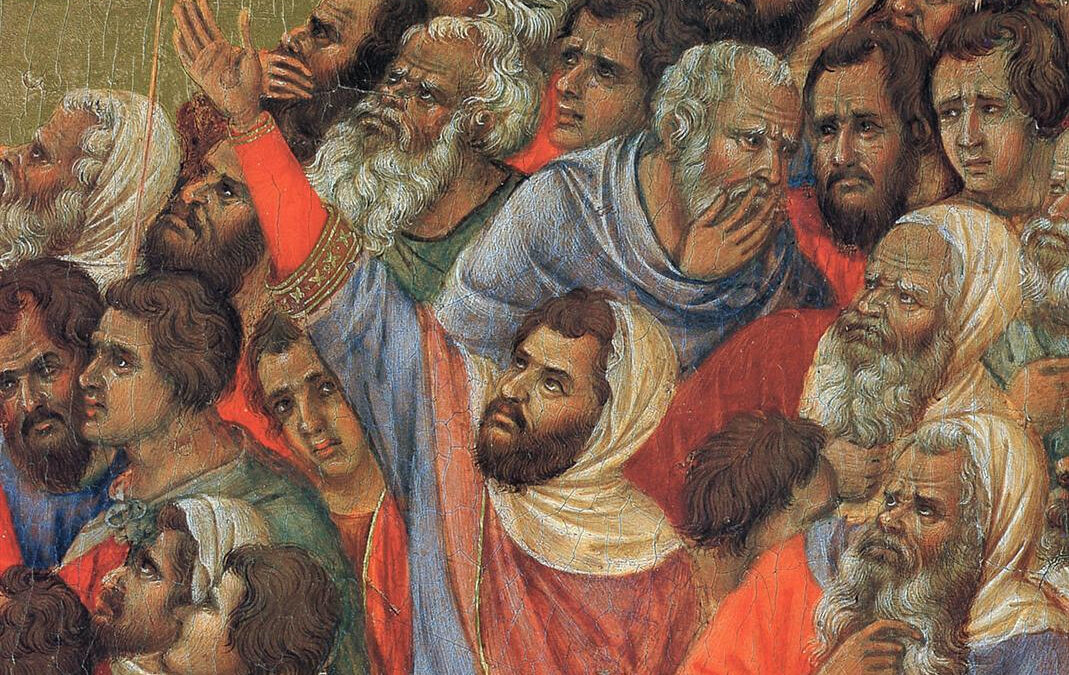“And they that passed by reviled him, wagging their heads,” (Matt. 27:39).
Nothing is more natural to humanity than for one to see another in misery or poverty and feel pity for them. How often do you see a homeless soul, carrying a bag or maybe pushing a cart with what looks to be everything they own in it, and feel a great deal of pity for them? Even though you have no knowledge of who they are or what they’ve done or how they now find themselves in this condition, your heart still goes out to them.
And yet when the completely guiltless Lamb of God hung wretched, bleeding, and broken on the cross, instead of overwhelming pity, a deep loathing welled up in the hearts of those who observed him. They further demonstrated their disgust by “wagging their heads” in a mocking manner. Even the worst of criminals who met with such an end didn’t elicit that harsh a response!
Innocence itself hangs naked in all its misery for the world to see. And yet there is none from the gawking clusters of humanity (other than his friends and family) who take pity. How rightfully might our Savior claim that no man ever suffered like he suffered (Lam. 1:12)? Other’s sorrows are at least somewhat mitigated with pity, but his burned more deeply and were made more raw from the vile, poisonous mixture of scorn, insults, and envy that were railed at him in his own moment of abject misery.
But what truer testimony of his power and mercy, as well as his innocence, than that which came from the mouths of his enemies themselves? “He saved others!” they shouted (Luke 23:35). What better confession could they have made than this which they offered: to describe him as a Savior! So that when they would have had Pilate alter the inscription of his accusation (John 19:21), if they had done rightly, it should have read, “Jesus of Nazareth, that saved others.”
The reason for their malice, and his death, is that he saved others. For in their pompous religiosity they add, “if he is truly Christ, the chosen of God, let him also save himself,” (Luke 23:35). While their intent with this statement was to disclaim his divinity and bring reproach on his power, how plainly instead do they proclaim his heart of mercy in doing more for others than for himself? He freed many from the chains of death, the grave, and the devil, leaving them with nothing to use against him but his own mercy. And, as a result, God’s redemptive plan remains unthwarted, for he did not save himself so that he may by his cross save others.
Contemplations:
- O my blessed Lord and Savior, what sort of difference is there between your sufferings and those of others? Others draw at least pity and condolences while yours elicit an onslaught of insults and contempt! He saved others, but himself (they say) he cannot save (Luke 23:35). The truth is that you chose to give up your freedom from sin’s penalty of death so death could hold no power over me. You freed me from sin and from death by subjecting yourself to your own death.
- How easily you could have come down from the cross, Lord! How easily you could have done to your enemies what they bragged they did and could do to you. For though you remained nailed in misery to the cross, yet at your word the seas, the winds, and the waves would still all obey you.
- In my mind I will remember that your will, Lord, is the rule of your justice, and that your actions do not always demonstrate the limits of your power. For your mercy is in and above all your works (Ps. 36:5). Many times your purposes may reserve, or suspend, or proportion the extent of your action; yet nothing can confine your power. Your word is not bound, so how much less your power (2 Tim. 2:9)? For you are, in truth, the Son of God and equal with God.
Further References for Matthew 27:39
Psalm 109:25; Psalm 22:7; Lam. 2:15; Mark 15:29


